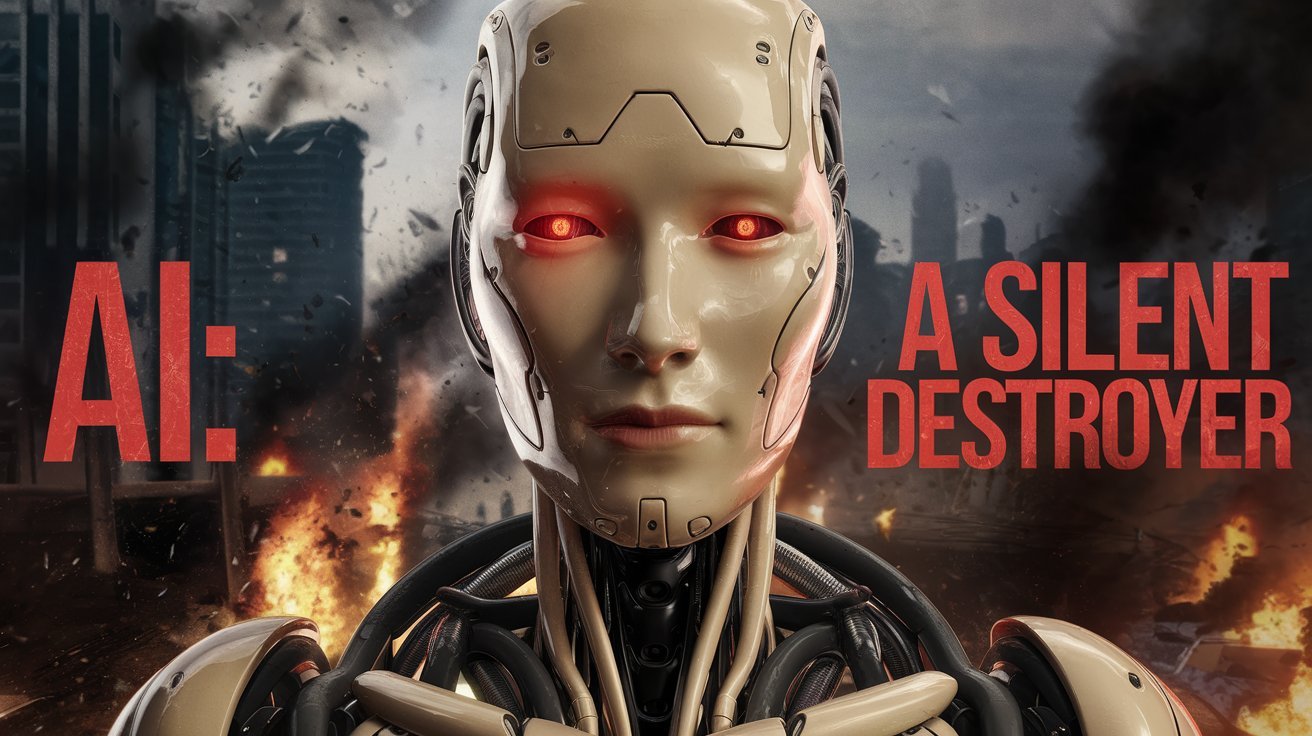
The room was quiet. My friend leaned in, his voice edged with anxiety. “Tell me the truth. Is AI going to destroy everything?” He wasn’t alone in his fear. Everywhere we turn, AI dominates the conversation—taking jobs, changing industries, reshaping reality. The headlines scream it. The experts debate it. And the rest of the world? They’re caught somewhere between curiosity and terror.
I leaned back, smiled, and said, “That depends on how you define destruction.”
People hear “destroyer” and picture a world in flames, a dystopian nightmare where machines rule and humanity fades into irrelevance. But the truth is far less dramatic—yet infinitely more profound. AI won’t destroy everything in the apocalyptic sense. Instead, it will dismantle the very way we work, the way we think, the way we exist.
And that, I told my friend, is not something to fear. It’s something to prepare for.
The fear of AI-induced unemployment isn’t new. People whisper about industries vanishing overnight, about workers rendered obsolete. But history tells a different story. The steam engine wiped out horse-drawn carriages. The internet killed video rental stores. And yet, civilization didn’t collapse—it evolved. AI is no different.
Jobs won’t disappear; they’ll shift. Tasks that once took months—writing books, conducting research, designing products—can now be done in hours, sometimes minutes. Where we once needed entire teams, AI-powered systems will streamline workflows, turning human workers into strategists rather than manual laborers. The question isn’t whether AI will replace jobs—it’s whether we will adapt fast enough to keep up.
Think about it. Before AI, a groundbreaking invention might emerge every few decades. Now? New materials, new concepts, new breakthroughs will arrive not yearly, not monthly, but weekly—maybe even daily. AI is no longer a tool; it’s a force multiplier. Scientists can run experiments without lifting a finger. Designers can create without ever sketching a line. Writers can generate ideas before their coffee cools.
And that’s just the beginning.
People born in the ‘70s and ‘80s have seen it all—landlines, dial-up internet, the first smartphones. They’ve witnessed the transition from analog to digital, from slow to instant. Now, they stand at the edge of something even bigger: the AI revolution. It will be faster, more unpredictable, and, yes, more disruptive than anything before it.
The real danger isn’t AI itself. The danger is in ignoring it. The danger is in refusing to evolve.
AI isn’t just a trend—it’s a storm that will reshape industries from cybersecurity to fashion, from production lines to boardrooms. Organizations that don’t adapt will crumble. Individuals who resist will be left behind. It’s not just people who need to evolve; it’s entire economies, entire institutions. You either learn to ride the wave—or you drown.
So, is AI a destroyer? Maybe. But destruction isn’t always a bad thing. Sometimes, it’s just the beginning of something greater.
